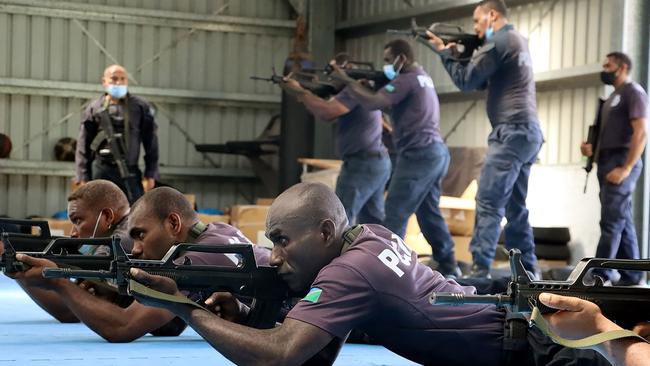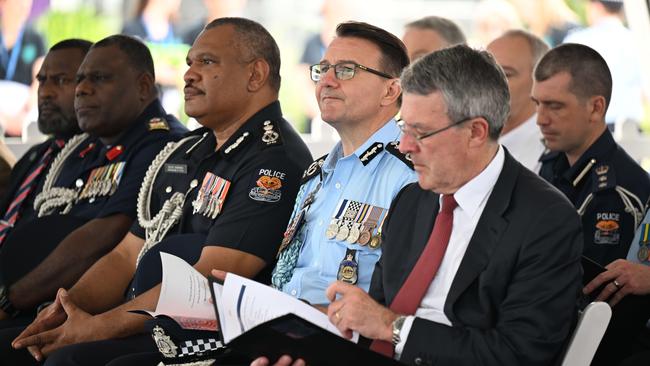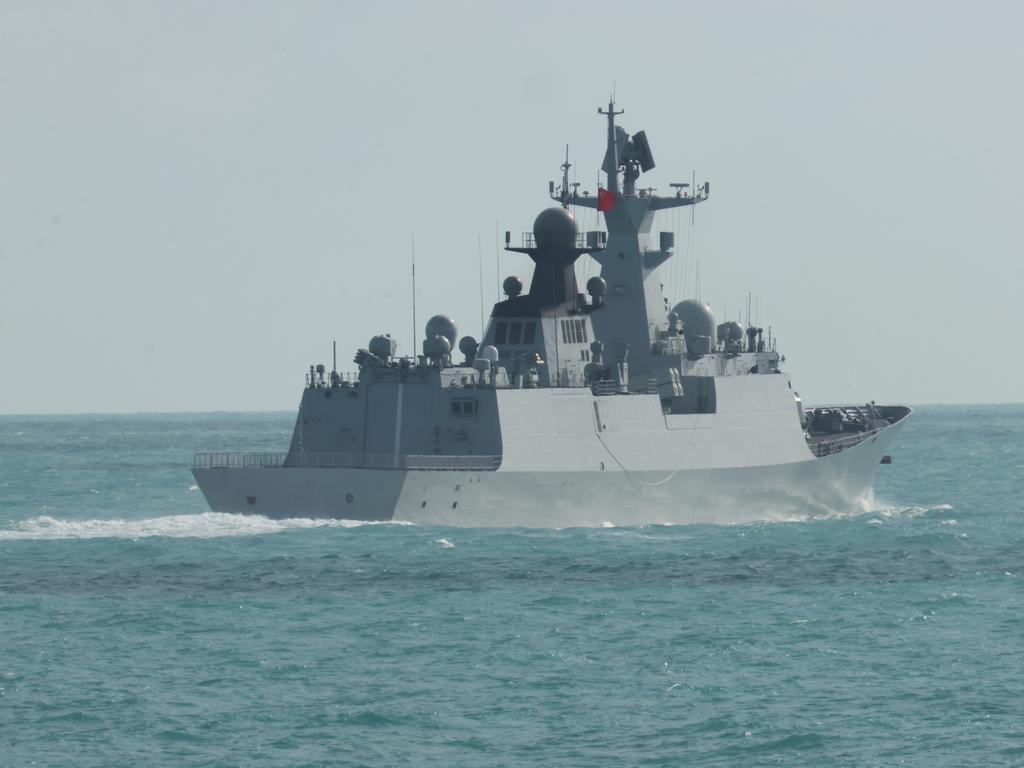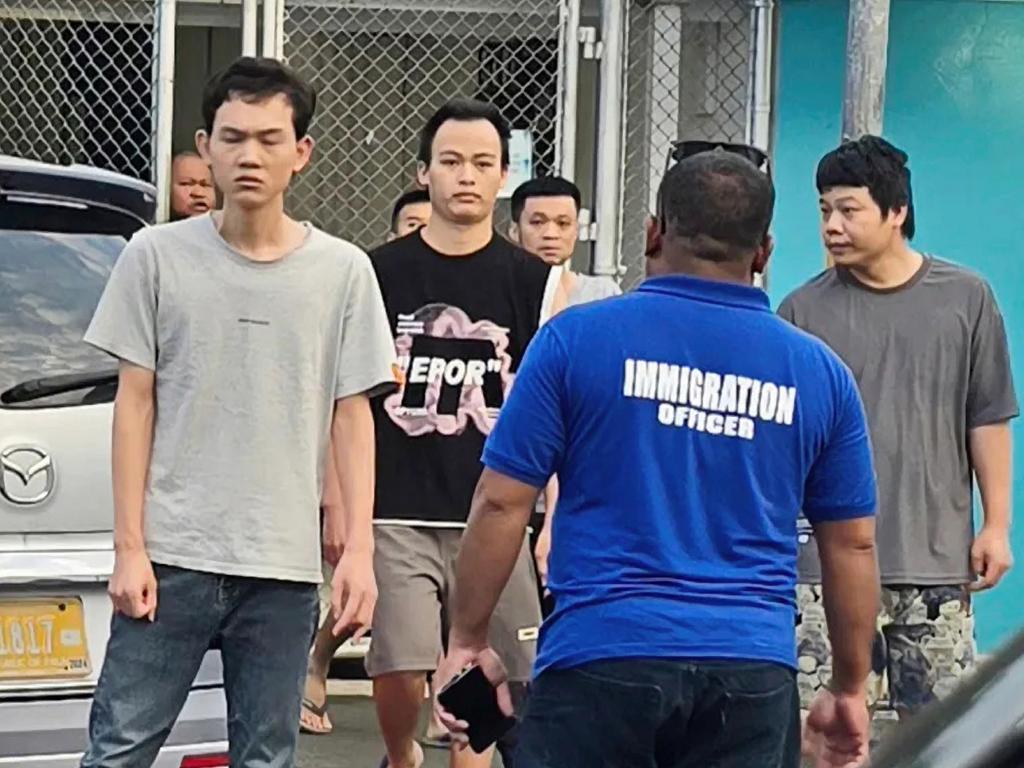AFP will train Pacific peacekeepers to help counter China’s influence
The AFP is boosting its policing engagement across the Pacific island region as part of Australia’s broader diplomatic push to prevent China establishing footholds in the area.

The Australian Federal Police is boosting its role in the Pacific in the face of growing competition from China by agreeing to train Pacific island police to become UN peacekeepers.
The move comes at a time when China is aggressively trying to strike police co-operation deals with Pacific Island nations as a means to gain leverage over their strategic direction.
In response, the AFP is boosting its policing engagement across the Pacific Island region as part of Australia’s broader diplomatic push to prevent China establishing footholds in the region.
Beijing has criticised the AFP for having an “impure motive” to “contain China” in its growing push to forge closer links with Pacific island nations.
As part of its attempts to sideline China and forge closer relationships with the Pacific, the AFP is hosting the world’s first UN Police Peacekeeping Training course tailored specifically for the Pacific region.
The course, which started in Brisbane this week, brings together 100 police officers from across the Pacific and East Timor and aims to build a deployable, Pacific-led UN peacekeeping capability.
AFP Assistant Commissioner Nigel Ryan said the course would help “reinforce Australia’s role as a preferred partner of choice in the Pacific for sustained peace, security and prosperity in the region”.
Mr Ryan said the AFP’s presence in the Pacific had grown “exponentially” in recent years, and despite growing competition from China he believed that Australia was still the partner of choice in policing and security.

“It’s no secret that China has ambitions to increase their presence in the Pacific in the security space,” he told The Australian. “But we’ve got longstanding relationships going back decades with our Pacific partners, and they’re very strong relationships.
“We are part of the Pacific family and Australia is recognised as the partner of choice, particularly in the security space.”
AFP Deputy Commissioner Lesa Gale said the peacekeeping course provided “a powerful stage to amplify the region’s collective approach to policing and draw global attention to collaborations such as the Pacific Policing Initiative, which is a Pacific-led and Australia-backed initiative to strengthen peace and security.
The PPI, which was endorsed by Pacific Island leaders last year, has been criticised by China as having the “impure motive” of “containing China’s security presence in the region”.
“With an impure motive, the pact only exposes Australia’s attempt to intervene in regional countries’ security decision-making, and such manoeuvres prioritise US strategic blueprint while bringing limited, if any, benefits to Australia or Pacific Island Countries needs,” the state-owned Global Times said last year.
“Such an exclusive policing pact not only violates general principles in international relations but also infringes on PICs’ sovereignty to independently choose co-operation partners.”
China has stepped up its push to secure police co-operation deals across the region. It currently has police security agreements with Solomon Islands, Fiji, Vanuatu and Kiribati. Papua New Guinea turned down a Chinese proposal for a police agreement last year after pressure from Australia. In some countries like Solomon Islands and Fiji, both the AFP and Chinese police provide assistance to local police and security forces.
The AFP has lifted its presence in the Pacific to more than 100 AFP personnel stationed across the region to help fight transnational and cyber crime and provide specialist training to Pacific police forces.
The AFP chose to host the UN training course in response to a desire by Pacific nations to contribute more actively to international peacekeeping efforts.
“The inaugural (five week) course will significantly advance those ambitions, giving Pacific member nations a meaningful role internationally in helping shepherd nations from conflict to peace,” Ms Gale said.







To join the conversation, please log in. Don't have an account? Register
Join the conversation, you are commenting as Logout